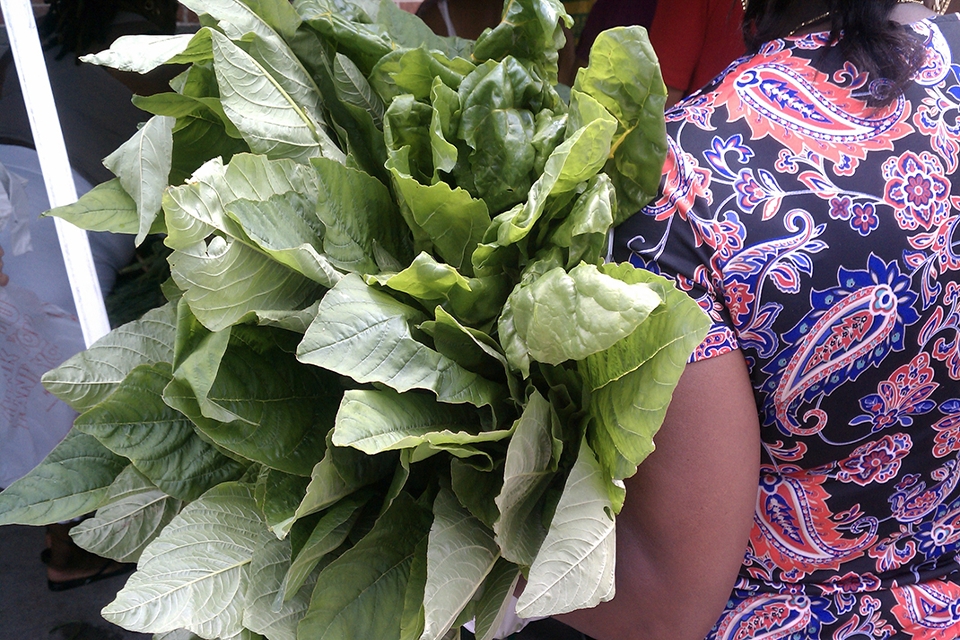Sara Shostak

Photo Credit: Sara Shostak
Brandeis University Associate Professor of Sociology Sara Shostak’s research and teaching interests include the sociology of health and illness, science and technology studies, and environmental sociology. Across these domains, she focuses on how to understand - and address - inequalities in health. Shostak's current research focuses on urban agriculture in New England cities.
Office of the Vice Provost for Research: When did you start doing this research?
Sara Shostak: I started thinking about urban agriculture as a research project in 2012. It began with a very focused question about how and why urban agriculture is happening in Somerville and grew into a state wide ethnographic project that looks at urban agriculture across cities in Massachusetts. That larger project is on its way to becoming a book. It’s under contract in the Nature, Society, and Culture Series at Rutgers University Press.
OVPR: How did you get involved in doing research with so many urban agriculture groups?
SS: In the process of doing all of this research in different cities and with different groups it became clear to me that there is a lot of potential for collaborations between academics and the groups that are doing urban farming, community gardening, food access, food justice, youth development, all of these things that happen under the umbrella of urban agriculture. I wanted to give back to the groups that were making a lot of my research possible.
OVPR: How did you use your research to give back?
SS: I started doing collaborative research projects. The first project I did, in 2015, was an evaluation of Somerville’s mobile farmers’ market. We asked questions that were important to the organizations that run the market, Groundwork Somerville and Shape Up Somerville. Those were questions like how many people were shopping at the market on a given weekend; what do they like about the market; what do they see as shortcomings of the market; and what kinds of goods and produce would they like to buy that the market isn’t selling. I give Shape Up Somerville and Groundwork Somerville a ton of credit because they took the data from that evaluation and totally changed their sourcing model within a year, so that they could provide more of the kinds of food that people really wanted to buy at that market.
OVPR: What other organizations have you worked with?
SS: The project I did after the Somerville mobile market evaluation was a project with The Food Project, an amazing organization that does work throughout eastern Massachusetts. That project looked primarily at the motivations and experiences of community gardeners; we did focus groups with two groups of gardeners in Lynn and two groups in Boston. In Lynn, we did a focus group with seniors at a housing project and with the Cook Street Community Garden, where a large proportion of gardeners are from the Congolese Development Center. Among the gardeners at Cook Street were people who had been in the U.S. from between 7 days and 7 years, so it was really important to have translators for that group. In Boston, we had a focus group at the Dudley Greenhouse with gardeners who garden in the greenhouse, and another with groups that garden in the surrounding areas. We wrote a report for The Food Project and published a peer reviewed paper about how community gardens generate social capital.
OVPR: How has this research impacted your teaching?
SS: In 2016, with my HSSP capstone class, I did a collaboration with the Urban Farming Institute of Boston that was focused on their revitalization of the Fowler Clark Farm in Mattapan. All of the students in my class participated in that project, in two different ways. First, they worked in teams, often with support from the library, on mini-projects they designed using different kinds of research methods. Second, all of the students did oral histories either individually or in pairs about food and health and community in the neighborhood. [Read Tove Olaussen Freeman ’16 guest blogging about the experience for Historic Boston Incorporated.] Those interviews we gave to the Urban Farming Institute, and their intention once the farm site has been rebuilt is to build an installation that locates the farm in the context of the history of the neighborhood.
OVPR: What is your next research project?
SS: I’m teaching a class this spring in Sociology called So You Want to Change the World? and the organizing principle behind the class is that the best way to be an agent of change is to meet lots of agents of change, and hear about what they do and why they do it, and read their work. Human rights advocate Veena Siddharth, she’s based in Costa Rica, spoke recently to the class and one of the things she said is we’re really good at evaluating the goals of our projects—like, how many pounds of food were sold, or how many people take advantage of SNAP benefits?—and what we’re not as good at yet is understanding if our projects have changed power relationships and systems. So, with support from the Merck Family Fund and in collaboration with the urban ag groups, the Massachusetts Food System Collaborative, and the Conservation Law Foundation, I’m now working on the question of how to better assess the impacts of urban agriculture in Massachusetts.
Editor's Note: This interview has been edited for length and clarity.